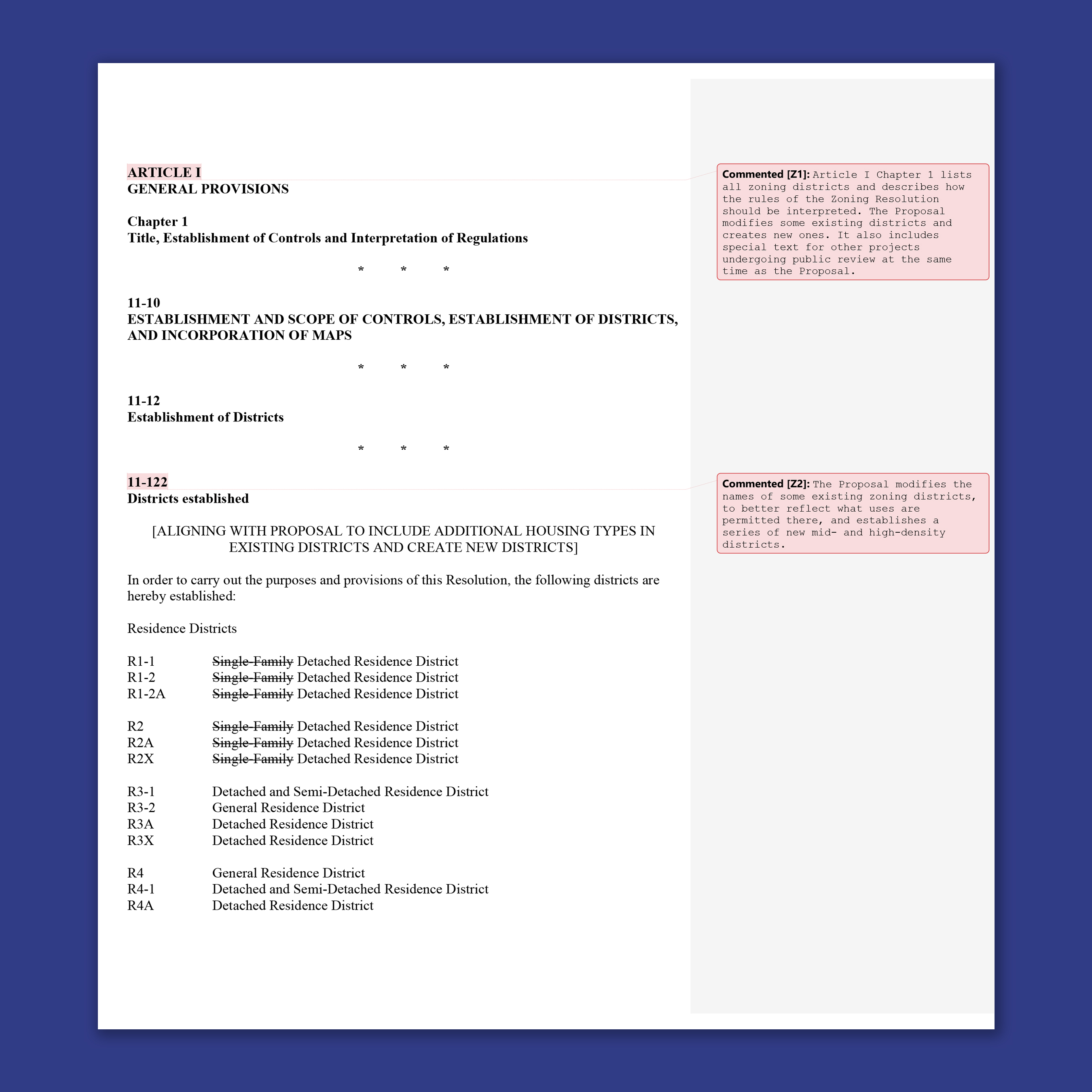
 Department of City Planning311
Department of City Planning311 Search all NYC.gov websites
Search all NYC.gov websites
City of Yes
Housing Opportunity
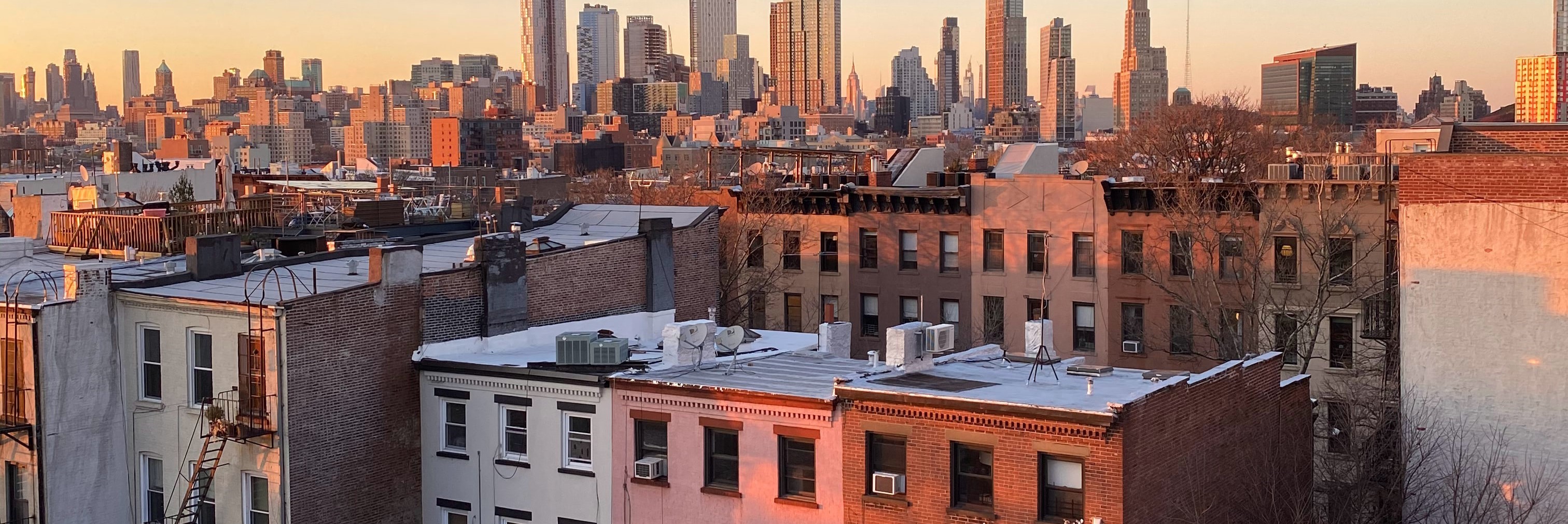
Every day, New Yorkers struggle with our city’s housing shortage. High housing costs, long commutes, cramped apartments, and instability are all the result of a lack of options.
Outdated, restrictive, and complicated zoning laws limit opportunities to create new homes and make those that do get built more expensive.
City of Yes for Housing Opportunity is a zoning reform proposal that would address the housing crisis by making it possible to build a little more housing in every neighborhood.
The proposal will enter public review in spring of 2024, receiving input from community boards and borough presidents before going to the City Planning Commission for a vote. If passed, it is anticipated to come for a vote before the City Council by the end of the calendar year.
Upcoming Info Sessions
- April 17: Learn about all aspects of the City of Yes for Housing Opportunity proposal in this overview session. Register here and livestream the event on YouTube here.
What would City of Yes for Housing Opportunity do?
In recent decades, high-demand neighborhoods have lost affordable housing and become increasingly out of reach to working families.
The Universal Affordability Preference is a new tool that would allow buildings to add at least 20% more housing, but only if the additional units are affordable. As a result, it will deliver new affordable housing in high-cost neighborhoods across New York City to working families.
Today, outdated rules prevent underused offices and other non-residential space from converting to housing. For example, many buildings constructed after 1961, or outside the city's largest office centers, cannot be converted to housing.
City of Yes will make it easier for vacant offices and other non-residential buildings to become homes, a win-win policy to create housing, boost property values, and create more active, vibrant neighborhoods in areas that have been hard-hit by the effects of the pandemic.
New York is a city of neighborhoods, and each neighborhood is anchored by commercial corridors with shops and vibrant street life – a little town center for every community.
Modest apartment buildings with stores on the street and apartments above exist in low-density areas across the five boroughs – most of them from the 1920s to 1950s. Today, zoning prohibits that classic form even in areas where it’s very common.
By relegalizing housing above businesses on commercial streets in low-density areas, City of Yes will create new housing, help neighbors reach small businesses, and build vibrant mixed-use neighborhoods.
New York City currently mandates off-street parking along with new housing even where it's not needed, driving down housing production and driving up rents.
City of Yes would end parking mandates for new housing, as many cities across the country have successfully done. The proposal will preserve the option to add parking, but no one will be forced to build unnecessary parking.
Across the city, small homeowners face challenges with rising costs and aging in place. Regulations limit what New Yorkers can do with their own property, which means families have to move farther away from their grandparents or grandchildren, or are forced into uncomfortably cramped houses.
Meanwhile, spaces like garages go unused when improvements could make them comfortable homes.
For seniors fighting to stay in the neighborhood on a fixed income, or young people stretching to afford a first home, adding a small rental unit can be life changing. But under current rules, New York City homeowners can't choose to use their property in this way.
City of Yes would allow "accessory dwelling units," or ADUs — which include backyard cottages, garage conversions, and basement apartments. Cities across the country have already legalized accessory dwelling units because they support homeowners and provide more space for multi-generational families without significantly changing the look and feel of a neighborhood.
Accessory dwelling units also make it easier for younger generations or caregivers to live nearby. And they can deliver big benefits while fitting in with existing buildings.
Adding housing near public transit is a commonsense approach to support convenient lifestyles, limit the need for car ownership, lower congestion, and reduce carbon emissions. Many modest apartment buildings exist in lower-density areas, most of them built between the 1920s and 1950s.
However, current zoning bans apartment buildings like these, forcing New Yorkers into long commutes, increasing traffic congestion and worsening climate change.
City of Yes would relegalize modest, 3- to 5-story apartment buildings where they fit best: large lots on wide streets or corners within a half-mile of public transit.
Across the city, many residential, faith-based, or other campuses have underused space that they could turn into housing. That new construction can pay for repairs to existing buildings, breathe new life into community institutions, and help address our housing crisis.
Today, arbitrary rules get in the way. For example, if existing buildings are too tall or too far back from the street, zoning prohibits new development on the property – even if the new developments would comply with current regulations. City of Yes would make it easier for campuses to add new buildings if they wish to by removing obstacles and streamlining outdated rules. The new buildings could bring money for repairs, new facilities, and housing.
City of Yes advances key recommendations from the Where We Live NYC Plan. Where We Live NYC is the outcome of an in-depth two-year process with over 150 community partners that identified strategies for fair housing and equity.
Sharable Guides About the Proposals
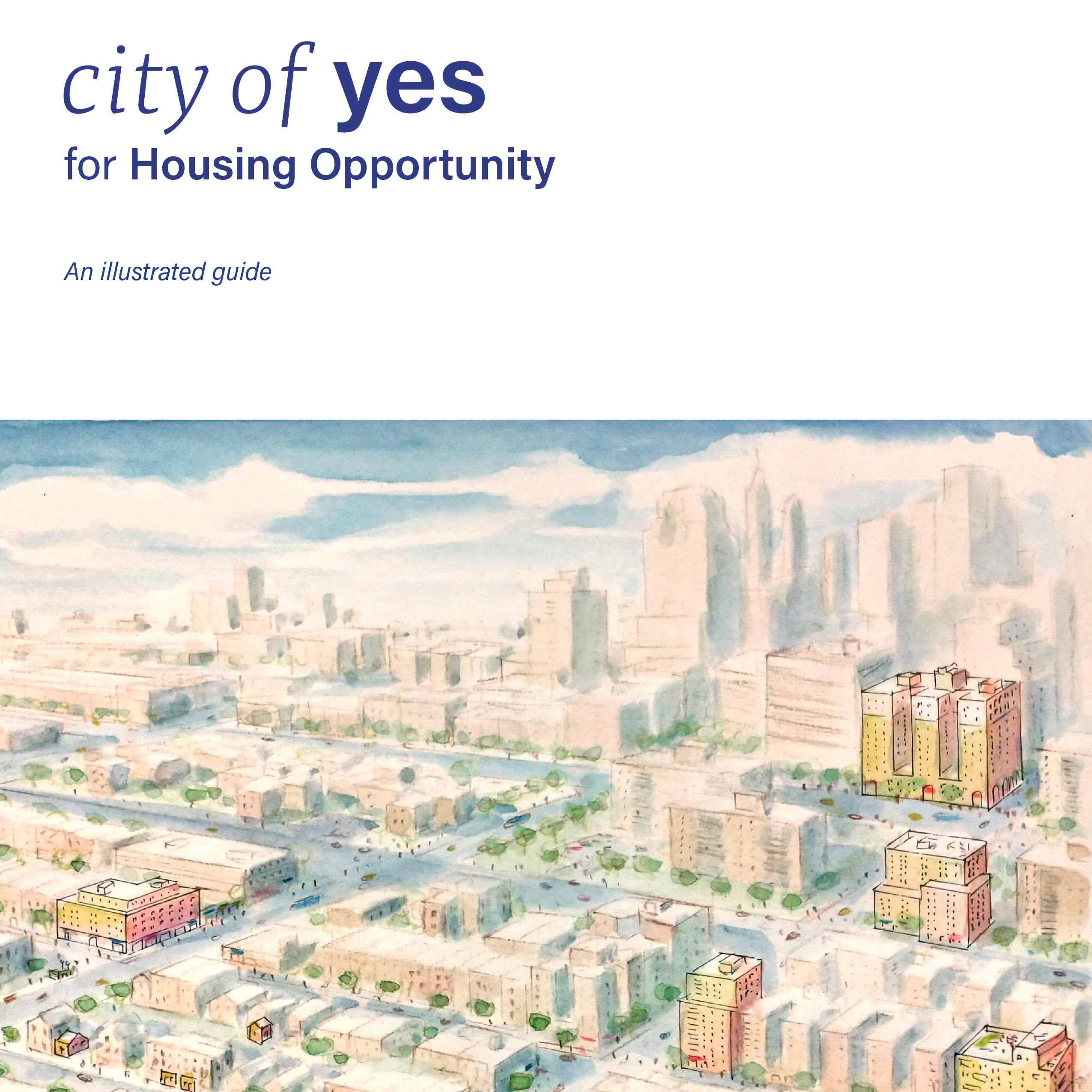 Housing Opportunity: An Illustrated Guide
Housing Opportunity: An Illustrated Guide 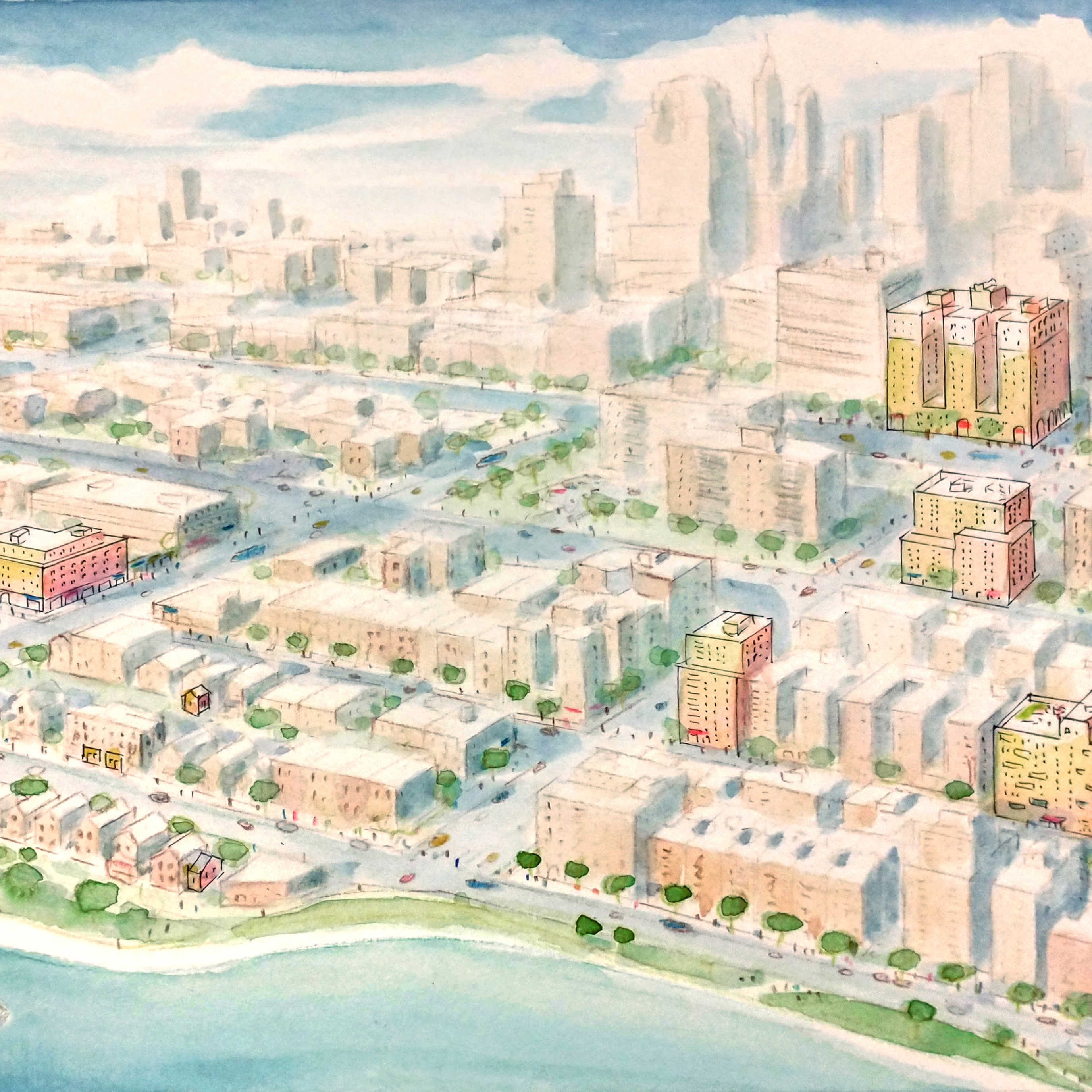 Overview of the Housing Opportunity Proposals
Overview of the Housing Opportunity Proposals 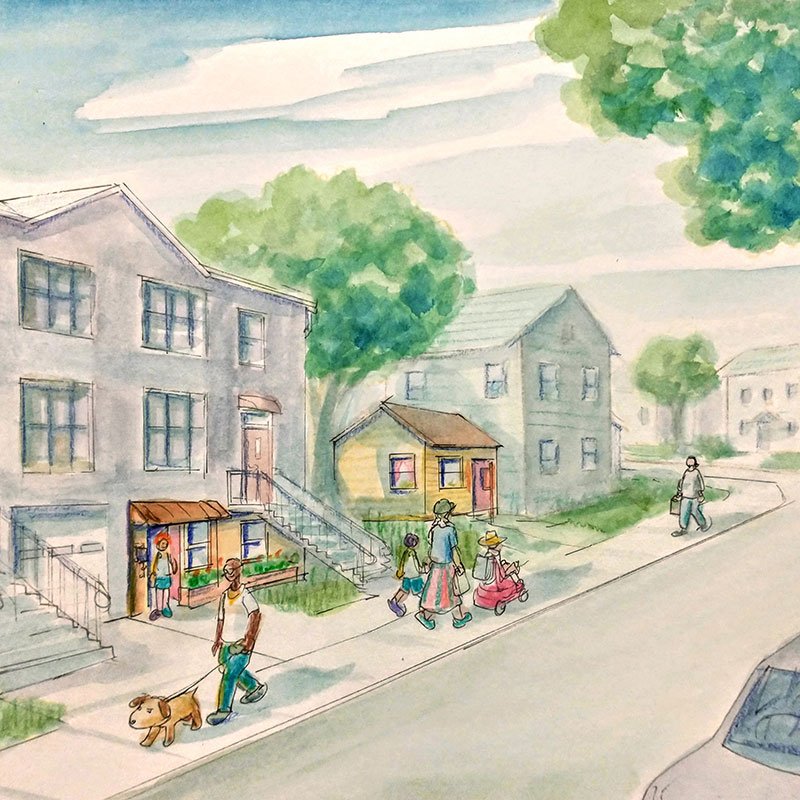 Accessory Dwelling Units
Accessory Dwelling Units 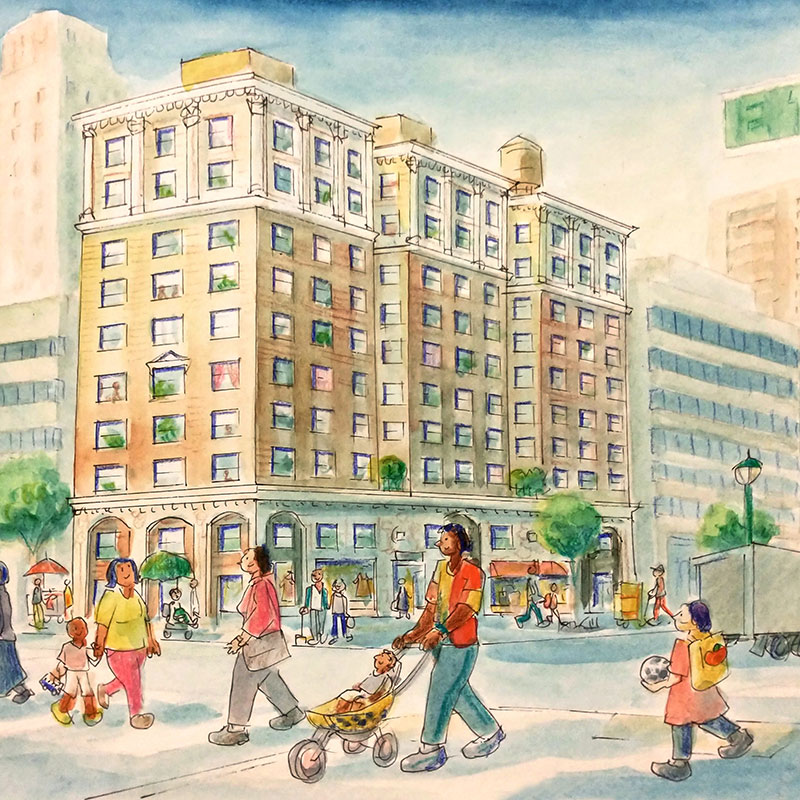 Building Conversions
Building Conversions  Campuses
Campuses 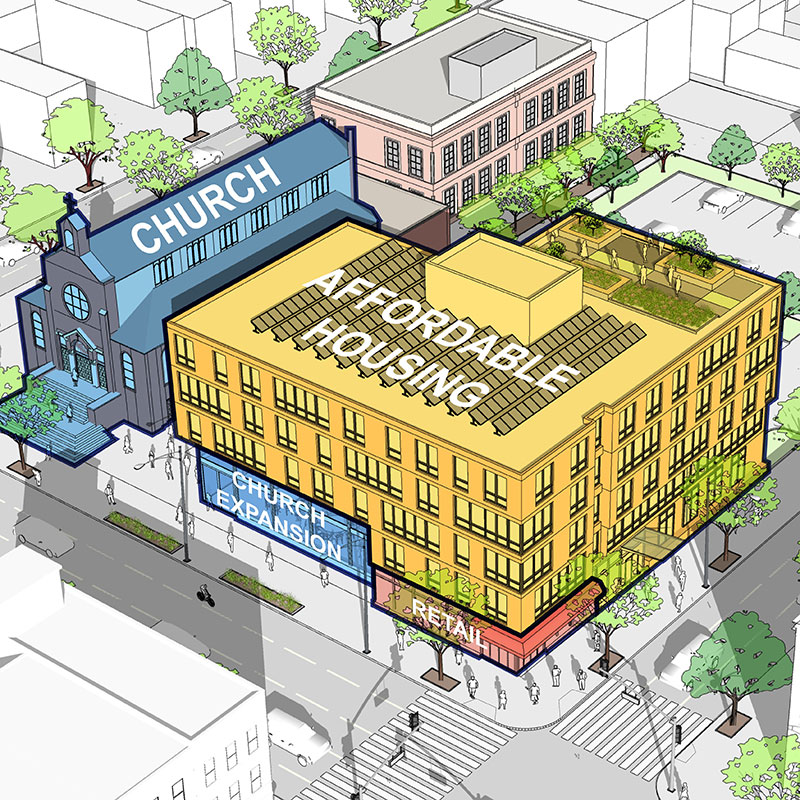 Faith-based Organizations
Faith-based Organizations 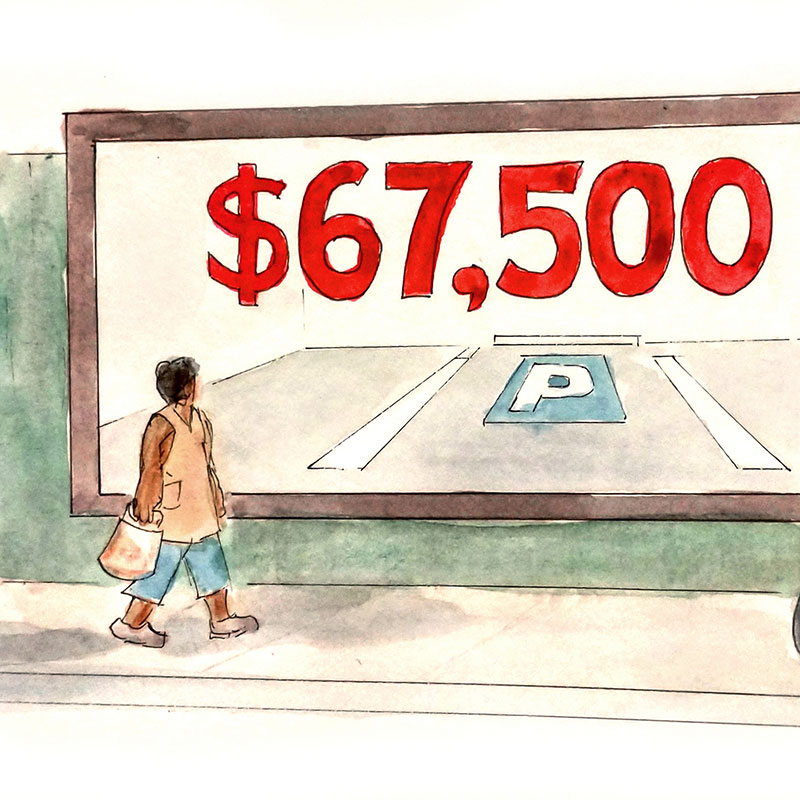 Removing Parking Mandates
Removing Parking Mandates 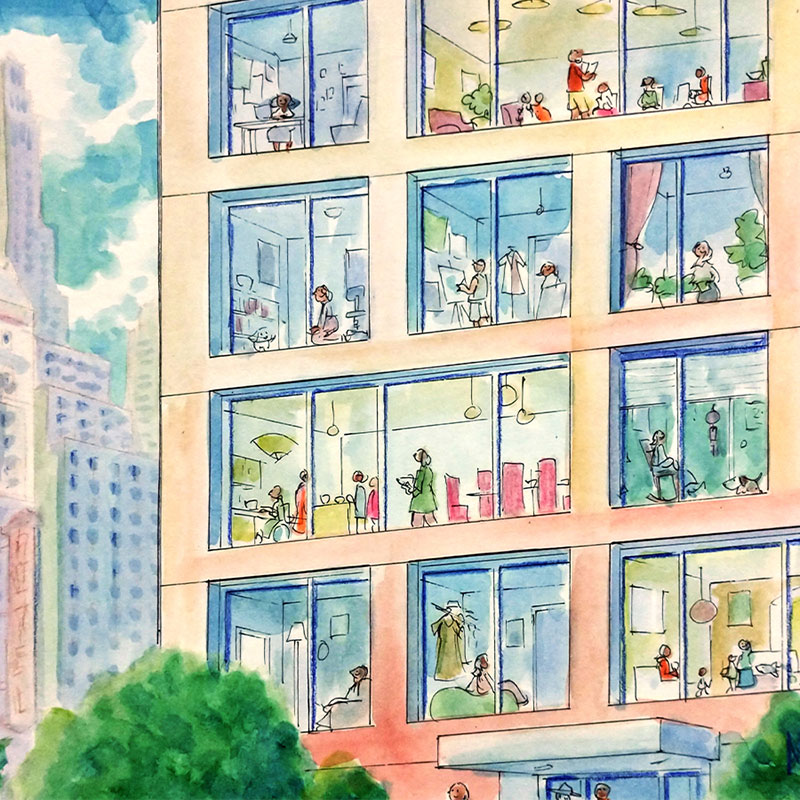 Small and Shared Housing
Small and Shared Housing 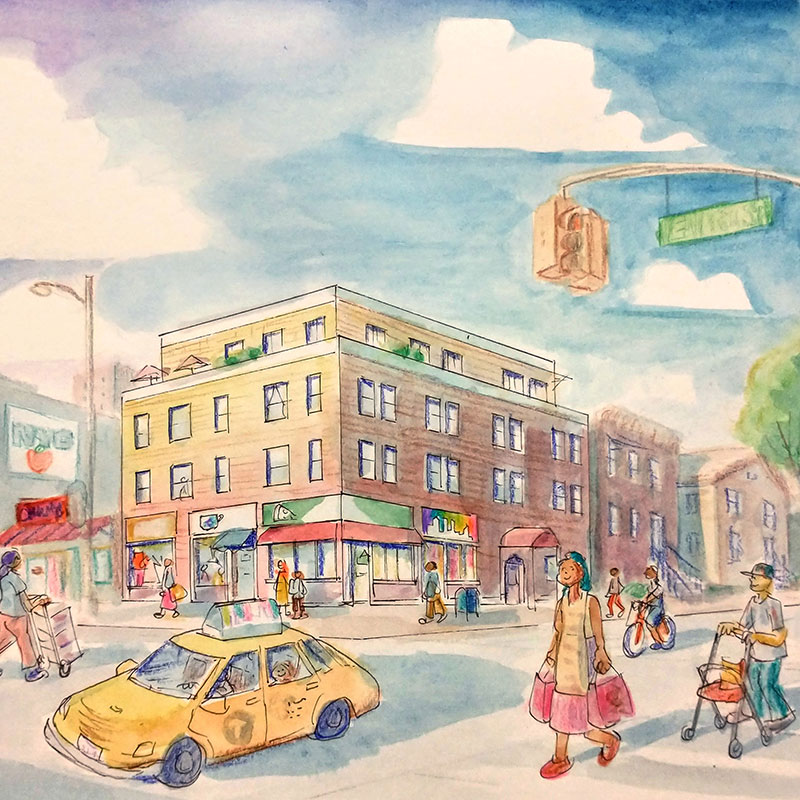 Town Center Zoning
Town Center Zoning 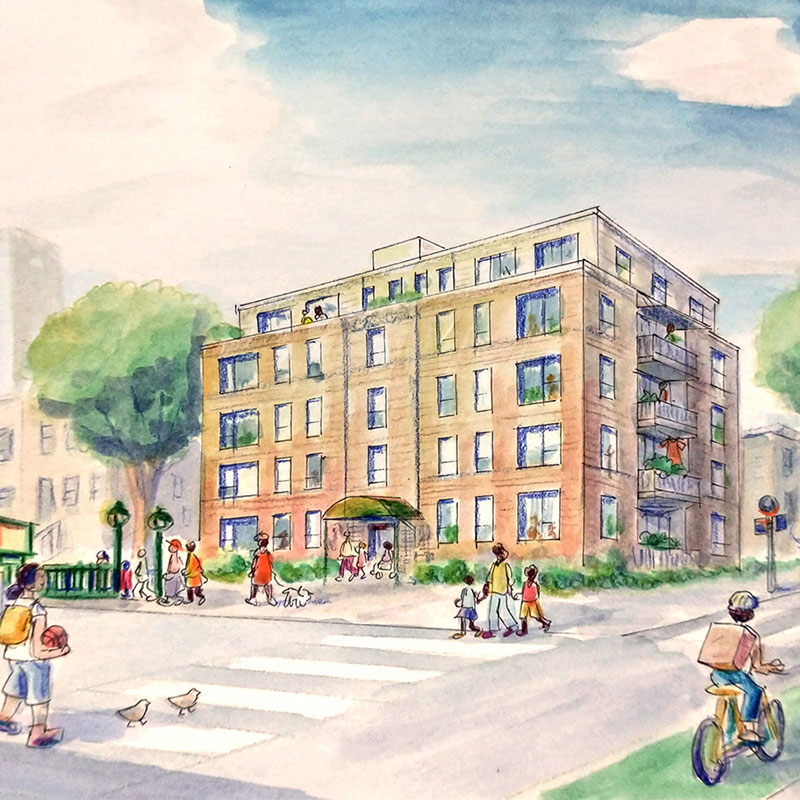 Transit-oriented Development
Transit-oriented Development 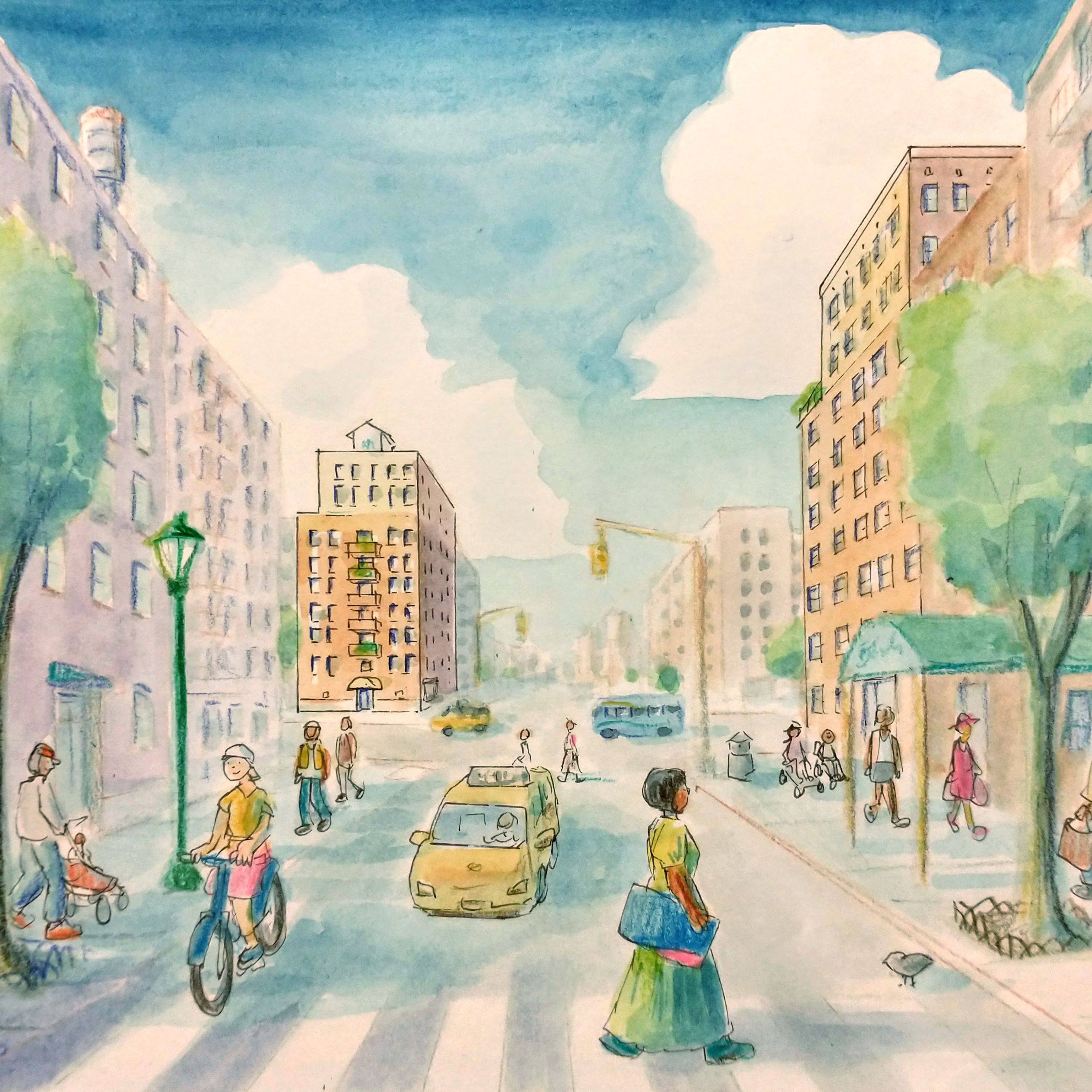 The Universal Affordability Preference
The Universal Affordability Preference Zoning Details
Past Meetings
Watch videos from our monthly info session series focusing on the City of Yes for Housing Opportunity proposals. Select videos from the playlist to the right of the video player.
- View the Missing Middle Housing Types presentation slides here
- View the Diverse Housing Types presentation slides here
- View the Universal Affordability Preference Info Session presentation slides here
Scoping
The Draft Scope of Work and the Environmental Assessment Statement were released on September 26, 2023. These documents provide a detailed description of the Housing Opportunity proposal and how NYC Planning intends to study potential environmental impacts.
- View the scoping documents on the the Zoning Application Portal here under Public Documents. See "Draft scope of work_24DCP0337" and "EAS_24DCP033Y."
- Watch the Oct. 26, 2023 public scoping meeting here.
- View the Oct. 26, 2023 scoping meeting presentation slides here.
What they're saying
Read More
- 11/22/2023 - Daily News: Build for the future: N.Y. needs lots more housing
- 11/6/2023 - Crain’s NY: The city has a chance to correct a mindset from the 1960s to create more housing
- 10/26/2023 - Bloomberg: How to Solve New York City’s Housing Crisis
- 9/24/2023 - Daily News: Eric Adams’ housing plan is what NYC needs
- 3/6/2024 – Municipal Art Society of New York in Crain’s: City of Yes housing plan is refreshingly holistic
- 2/15/2024 - Mayor Adams and Speaker Adams: fixes for NYC housing shortage
- 1/5/2024 - Slate Property Group and Open Plans in Crain’s: To build more housing, build less parking
- 10/2/2023 - Mayor Eric Adams in amNY: The future of housing in NYC
Contact Us
For more information or to ask questions, please contact: HousingOpportunity@planning.nyc.gov.
Subscribe for City of Yes updates
Go to City of Yes:



